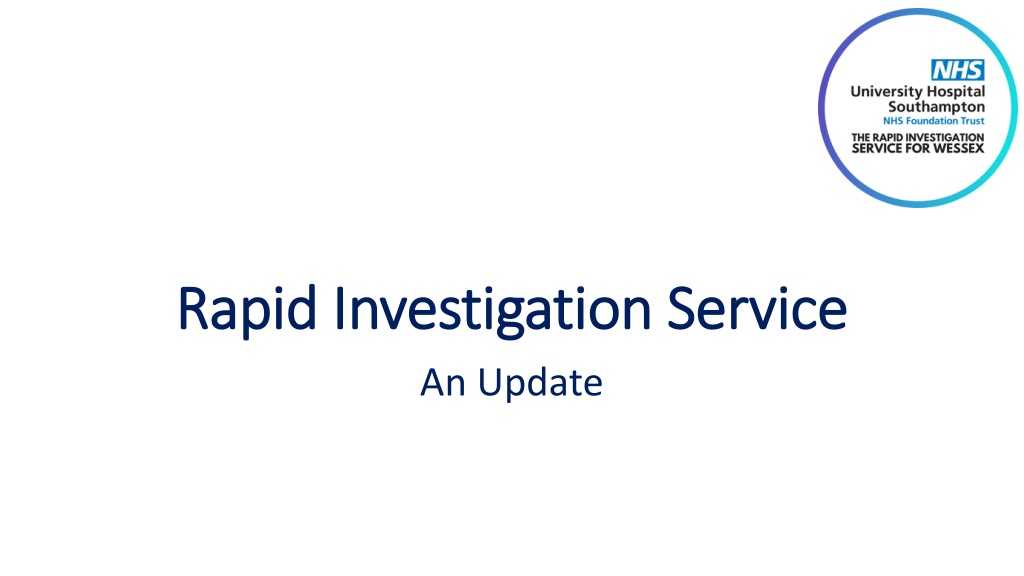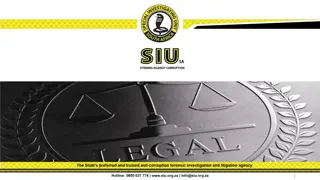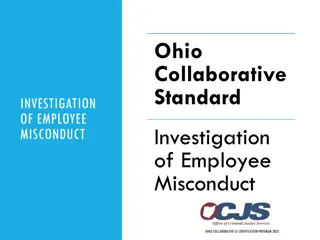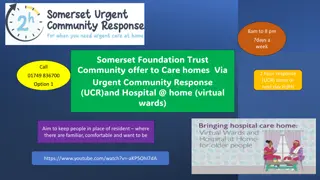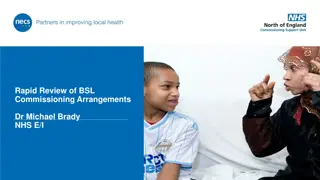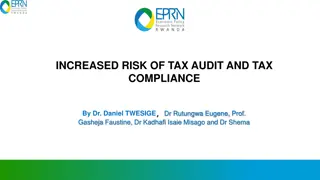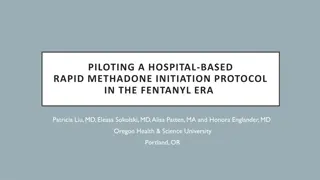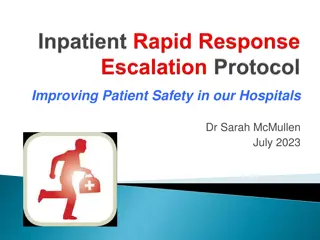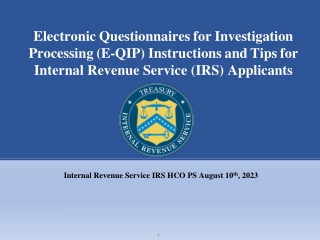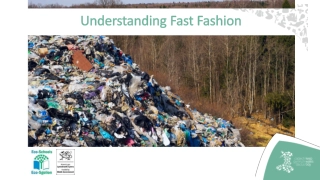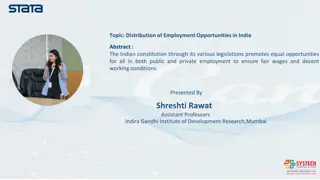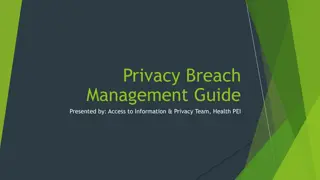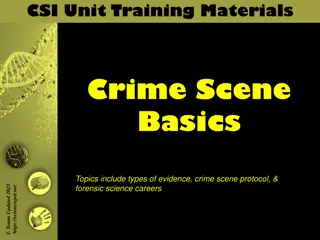Rapid Investigation Service
The Wessex Rapid Investigation Service (RIS) offers a dedicated urgent diagnostic pathway for cancer patients with non-specific symptoms. Through a virtual hub hosted by the UHS and covering Hampshire, Dorset, and the Isle of Wight, the RIS aims to ensure timely and efficient testing for early cancer detection. With a focus on faster diagnosis and referrals, the RIS clinical and administrative teams work together to provide a swift, 2-week wait referral pathway for adult patients, supporting the NHS England's goal of improving cancer diagnosis by 2024.
Download Presentation
Please find below an Image/Link to download the presentation.
The content on the website is provided AS IS for your information and personal use only. It may not be sold, licensed, or shared on other websites without obtaining consent from the author. Download presentation by click this link. If you encounter any issues during the download, it is possible that the publisher has removed the file from their server.
Presentation Transcript
Rapid Investigation Service Rapid Investigation Service An Update
Agenda Agenda Background Purpose Referral criteria Filter Tests Patient Pathway what to expect MDT Onward referrals RIS or CUP? Data to date Q&A
Background Background Since 2019, cancer alliances have been developing new dedicated urgent diagnostic pathways so that every cancer patient with concerning, but non-specific symptoms, gets the right tests at the right time in as few visits as possible Wessex Cancer Alliance chose a virtual model to deliver this vision, covering Hampshire, Dorset and the Isle of Wight The virtual hub is hosted by UHS and is situated in the Aldermoor Health Centre Serving 264 GP practices and accessing tests at 6 acute Trusts covering 8 hospitals Central, virtual service to ensure equity in access
RIS Clinical Team RIS Clinical Team MEDICAL TEAM: Dr Kate Nash Consultant Hepatologist Mr Paul Nicholls Consultant Colorectal Surgeon Dr Richard Roope GP (1-2 days per week) Dr Laura Watson GP (Stockbridge) (1-2 days per week) NURSING TEAM: Lead Nurse Christine Talboys (joined Jan 2023) Band 7 CNS Natalie Dawson (joined April 2023) x 2 band 6 to start in July 2023 Jane Winter Lead for Cancer Nursing & AHP s - WCA
RIS Administrative Team RIS Administrative Team Carrie-Anne Howden Operations Manager Heather Holmes Associate Operations Manager Sarah Miller Patient Pathway Navigator Allison Wheeler Patient Pathway Administrator Lynne Newson Patient Pathway Administrator
Purpose Purpose The Wessex RIS provides a 2 week wait referral pathway for adult patients who exhibit symptoms which might be explained by an underlying diagnosis of cancer, but without cancer site-specific symptoms, in order to make or exclude a cancer diagnosis more quickly The aim of the rapid diagnostic service is to swiftly investigate patients with non-specific symptoms in an effort to pick up cancers at an earlier stage Supporting earlier and faster diagnosis By March 2024, NHS England aim to ensure that all patients with non- specific symptoms will be referred via a non-specific symptoms pathway
Who should be referred to RIS? Who should be referred to RIS? For all patients aged 18 years or older who meet the referral criteria who are not suitable for pre-existing 2 week wait pathways: There is no other urgent referral pathway for the clinical scenario Patient does not need admission Patient does not have a non-cancer diagnosis suitable for another specialist pathway All the mandatory filter tests have been done and all the results are included on the referral form Patient is suitable to undergo a CT CAP
Referral Criteria Referral Criteria New significant unexplained and unintentional weight loss of >5% (Please consider Coeliac screen) New unexplained constitutional symptoms: Loss of appetite Nausea Severe unexplained fatigue Night Sweats - If male, consider testosterone New unexplained abdominal pain for 4 weeks or more New unexplained or progressive pain e.g., bone pain (Where felt appropriate Myeloma screen, Bence- Jones Urine, Electrophoresis https://bjgp.org/content/68/674/e586) ASYMPTOMATIC RAISED PLATELET COUNT: New raised platelet count of > 400, aged over 40 years (two tests performed at least 6 weeks apart): Please follow the NICE CKS (Clinical Knowledge Summary) for initial management: https://cks.nice.org.uk/topics/platelets-abnormal-counts-cancer/diagnosis/assessment-of-thrombocytosis/ If no cause found from the above guidance, referral can be accepted through RIS. Referrer intuition of cancer diagnosis (reasons to be clearly described)
How to Refer How to Refer The referral must be complete and informative. Filter tests should be complete and reported. Referrals sent via ErS Referral is screened for completeness and appropriateness by the RIS clinical team. Patient(s) must be booked into a "dummy" appointment slot but should not be informed of date/time The filter tests are essential to ensure the non-specific pathway route is the most appropriate for the patient The referring GP will receive communication if there are any concerns. The RIS can be found: 2WW - Non-specific symptoms-GEC01 Aldermoor
Filter Tests Filter Tests Physical Examination key as we are a virtual service Urine dip often missed FBC ESR / CRP U&Es LFTs TFTs HbA1c Bone Profile PSA (Men - 45) CA125 (Women) FIT Test (using FIT test sample kit)- 10 will be considered positive CXR no longer a mandatory test
Patient Pathway Patient Pathway Referral sent into RIS via ErS and patient given information leaflet Admin team log the activity onto SystmOne Clinical team review the referral and accept or return if not suitable Once accepted admin team make a Welcome Call, explain the service and book a suitable date for clerking Clinical team call the patient and clerk them If suitable for CT CAP clinical team request CT in local hospital Patient made aware that if result does show cancer then the diagnosis will be relayed to them via the phone gain their verbal consent for this to happen If CT CAP not indicated patient is discussed at RIS MDT If patient is under 40 they are discussed at RIS MDT prior to arranging imaging
Patient Pathway Patient Pathway CT reports are collated by the admin team and clinical team are informed as soon as the result is available Very significant findings will be acted on immediately (ie PE) MDT twice a week (Mon lunch and Thursday am) ALL patients are presented and discussed Significant findings are referred directly to the appropriate specialty (via 2WW pathways) Other onward referrals may also be made (ie lung nodules) Further imaging may also be requested where required If clerking revealed upper GI symptoms then OGD may be requested Patient called and informed of results Detailed discharge summary to patient and GP NB email provided on referral form is used to communicate back MUST be a monitored account. Missing filter tests / clinical information
MDT MDT Twice a week via Teams Patient is presented Reason for referral Significant past medical history History of presenting complaint Red flag symptoms Scan results Discussion re onward referrals / reassure and discharge / safety-netting Referral checks that may not meet the criteria are discussed Patients whose symptoms have resolved / are feeling better since referral Anyone under the age of 40
Onward Referrals Onward Referrals Any cancer or possible cancer is referred via a 2WW pathway Patients with persistently raised platelets with no obvious tumour on CT may be referred to the haematology team Patients with widespread lymphadenopathy but no obvious primary may be referred to the CUP (Cancer of Unknown Primary) team Patients with lung nodules not previously known about are referred to the respiratory lung nodule pathways Adrenal adenomas are referred to the adrenal MDT AAA > 3cm referred to vascular for monitoring Osteoporotic fractures / spinal degeneration, atherosclerosis, emphysema GP advised of these findings in the discharge letter
RIS or CUP? RIS or CUP? CUP Cancer of Unknown Primary CUP patients will have had imaging which is suggestive of metastatic cancer, without clinical or radiological evidence to indicate a likely primary tumour and no primary organ-specific symptoms UHS CUP Referral Criteria: Suspicious bone metastases on plain x-ray or bone scan with no obvious primary clinically and a normal PSA and negative myeloma screen Liver metastases on ultrasound with no obvious primary clinically Multiple lung metastases on chest x-ray with no obvious primary clinically
Data to Date Data to Date Total accepted NSS Referrals 2021 / 2022 488 2022 / 2023 742 NSS Total Accepted referrals 93 in March 2023 TOTAL 1230 100 90 80 70 60 50 40 30 20 10 0 Jun Jul Aug Sep Oct Nov Dec Jan Feb Mar Apr May Jun Jul Aug Sep Oct Nov Dec Jan Feb Mar Apr May Jun Jul Aug Sep Oct Nov Dec Jan Feb Mar 2020 2021 2022 2023
Data to Date Data to Date NSS Year on Year accepted Referrals 800 700 600 500 400 >52 % 300 90.2 % of eligible practices have referred at least 1 patient onto the RIS pathway 200 100 0 2021/22 2022/23
Data to Date Data to Date Number of Confirmed Cancers by Site Confirmed Cancer by Site Breast 5 Colorectal 1 Breast Breast CUP 3 Colorectal Urology CUP Gynae (ovarian) 1 CUP Gynaecology Haematology 9 Haematology Head & Neck 2 Head & Neck Upper GI Liver Haematology Liver 1 Lung Lung 11 Pancreatic Sarcoma Renal Pancreatic 4 Sarcoma Renal 3 Renal Thyroid Sarcoma 3 Upper GI Lung Pancreas Urology Thyroid 1 Upper GI 5 Urology 11 TOTAL 60
Data to Date Data to Date Confirmed Cancer conversion + pending cases to be confirmed % pending cases included 4.5% 4.3 4.5% confirmed cancer rate % pending cases not included 4.3% 1 in every 22 scans will confirm cancer 4.2% 4.3% 4.3% 4.4% 4.4% 4.5% 4.5%
Things to Remember Things to Remember The RIS is a FULLY VIRTUAL SERVICE Patients referred MUST be suitable for CT CAP If the patient is very unwell then please discuss with medics Patients referred MUST be able to engage with a telephone consultation or have a friend / carer / family member who can answer on their behalf. If there are communication barriers PLEASE include this information on the referral form Results of filter tests should be known prior to the referral Please include as much detail as possible within the referral so that it is not returned unnecessarily Patients MUST have had a physical examination (and a urine dip) prior to referral Referrals will be delayed if the filter tests are missing PSA, Ca125 and FIT are pathway changing tests
What to do if a patient does not meet the What to do if a patient does not meet the referral criteria but you are still concerned referral criteria but you are still concerned Give as much information re your concerns in the referral Telephone the clinical team on 0300 123 1385 and discuss the referral and your reasons for wanting a CT CAP despite FIT, PSA or Ca125 being raised, as our default position is to decline referrals if any of these filter tests are raised
Future of the RIS Future of the RIS Open up the routes of referral to Emergency Departments / other health professionals Currently have a pilot running for self-referral of breast lumps / pain in conjunction with HHFT since Aug 2021. About to take on another PCN and opening up community clinics for clinician examinations About to start a pilot with UHS for self-referral of testicular lumps more of an administrative process for accessing the already established pathways Act on feedback received from our patients and primary care colleagues re the 2WW pathway and how it could be improved The NHS-Galleri Study The Galleri test has shown the ability to detect multiple types of cancers through a single bloodtest. Galleri may become part of routine cancer screening by the NHS RIS may be best placed to further screen these patients
Some current questions to address: Some current questions to address: What to do if the GP has already requested the CT CAP prior to referral? Best way of processing the referral when GP intuition is high, but PSA, Ca125 or FIT are raised
Any Questions? Any Questions?
